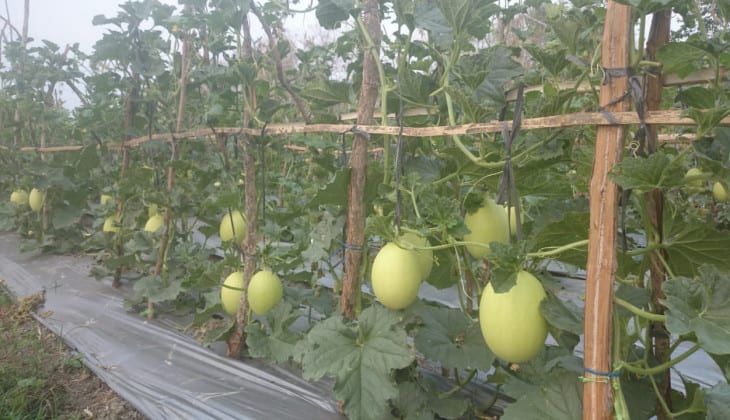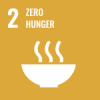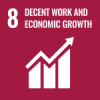
The prolonged dry season has a significant impact on the agricultural sector. Various types of plants cannot grow nor produce well due to minimal water supply. Many sources of irrigation also run dry.
However, one village in Lamongan still gets good production. Melon plants planted by farmers received fertilizer treatment from the Department of Agricultural Microbiology with assistance from the Directorate of Community Service, especially through Student Community Service (KKN) activities.
“I was told by the farmers that their melons have grown big, although the conditions are very dry. They are very happy, it never happened before,” said the Director of Community Service UGM, Prof. Ir. Irwan Dwidya Prijambada, M. Eng., Ph.D. when interviewed on Tuesday (29/10).
The farmer claimed to get far better results compared to previous years. In the dry season, he usually has to water the plants twice a day, in the morning and evening, but the plant produces smaller and fewer fruits.
However, after getting this assistance he only needs to water the plants once a day and get greater results.
These farmers’ plants, he said, were treated with special fertilizers containing Basilus and Mycorrhizae. This treatment has also previously been applied to chilli plants in Cangkringan which has provided great benefits for agricultural production.
UGM’s collaboration with farmers in Lamongan, he explained, began when one of the farmers met him last year and invited him to see the agricultural conditions in his village. After identifying the problems faced by farmers, UGM introduced fertilizer interventions through lecturers who were sent to the village.
“We started by sending staff, and then continued by placing KKN students there,” said Irfan.
He added, the assistance program for farmers would be continued and improved in the coming years by including coaching activities for the production process and introducing seeds developed by the UGM Faculty of Biology, as well as the product marketing process to attract markets so that they could directly buy products from the farmers.
“Our students can teach how these farmers can sell products through e-commerce, use the internet and social media so people know about products from this village,” he said.
Source: https://www.ugm.ac.id/id/berita/18646-ugm-bantu-petani-tetap-panen-meski-musim-kemarau



